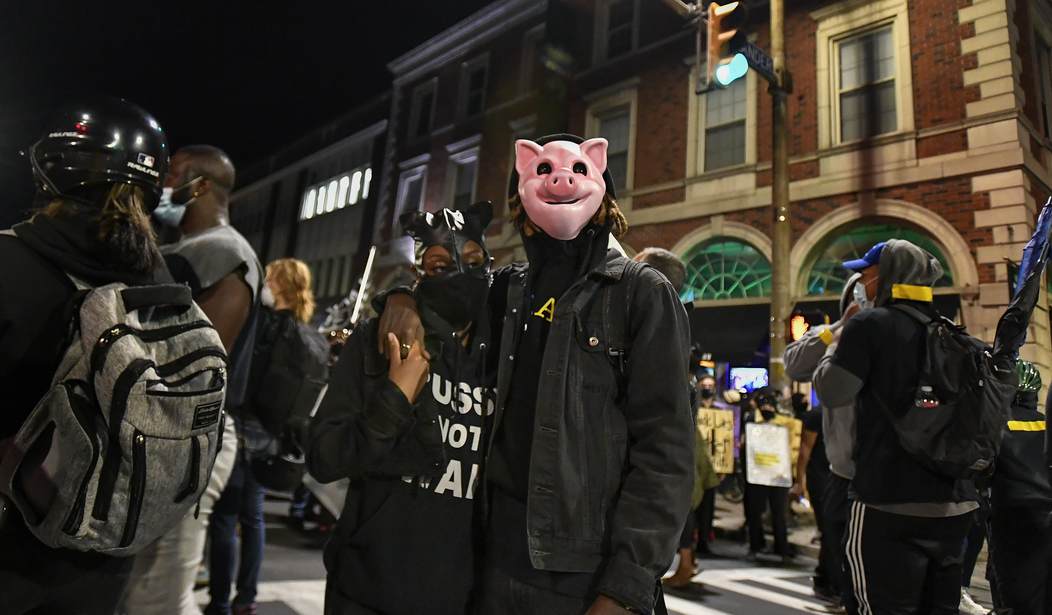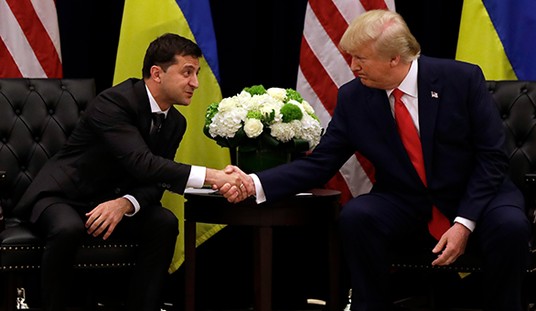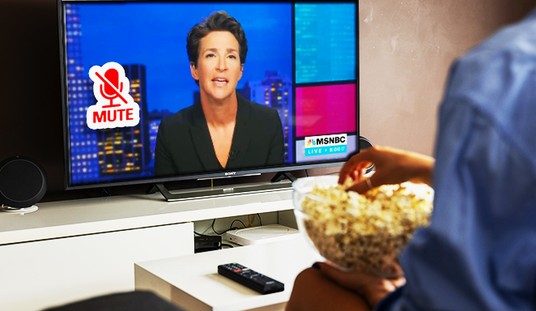(EDITORS NOTE: Please note the use a strong expletive in the 12th graf.)
To use the cliche of the moment, these are deeply polarized times. But there are some issues so urgent that we must find common ground. At the top of that list is preventing police-citizen interactions from resulting in the deaths of either innocent civilians or dedicated police officers.
Unsurprisingly, Joe Biden's Justice Department is now signaling its intent to address this problem in the time-honored Democrat way -- by "investigating" local police departments, so it can then announce the foregone conclusion that "systemic racism" abounds.
The next step in that playbook is a "Consent Decree," where local police departments, under threat of crippling and endless Dickensian litigation, agree to hand over their keys to the feds. And yes, this nifty move is executed under color of law, though it's not entirely different in spirit from the way Captain Phillips lost control of his container ship on the high seas, if you happened to catch the Tom Hanks movie.
Conservatives are girding for battle. In the past, Consent Decrees have been used to kneecap police departments, compelling them to waste millions of dollars on paperwork, and focus on concerns notable for not being "Keeping the Public Safe."
Maybe in the interest of comity, we shouldn't abandon Consent Decrees so fast. So here's my stab at one. Below, I have enumerated 16 bullet points that I believe we can all agree on.
1) When motorists see flashing police lights behind them, they consent to pull over. (See what I mean? Nothing but common sense!)
Recommended
2) Upon being asked for their license and registration, drivers will consent to produce those documents and not to fight with the officer, drive off or reach for a gun. (Again: Comity!)
3) As a general rule, it is advisable that drivers not engage in a game of Do I have a gun -- or is it a cellphone? with the officers, but when asked to show their hands ... well, I guess you'd say, "consent." (Beginning to see the pattern?)
4) For citizens holding the drug money for a major fentanyl ring in Louisville, Kentucky, if the police knock on your door at midnight, you consent not to shoot at the officers, but to open the door and say, "Yes, may I help you?" (Observation will reveal that this point cannot fail to produce the safe policing that we all desire.)
5) In fact, in any door-knock situation, you consent not to shoot at the police.
6) We may further strike the "in a door-knock situation" from that last point. In all circumstances, anywhere, anytime, citizens consent not to shoot at police officers.
7) While it is preferable that assailants not burst from their homes carrying 8-inch knives and screaming, "I'm gonna stab the f*ck out of you," when those circumstances arise, and responding officers have requested that the knife be put down just prior to the actual stabbing commencing, the assailant will consent. (This will be music to #BlackLivesMatter's ears, inasmuch as they believe that, you know, black lives matter.)
8) When sprinting through an alley at 2:30 in the morning holding a recently fired gun, with police in hot pursuit demanding that the suspect stop, the fleeing suspect will consent to stop.
9) If a further request is made that the suspect drop the gun, the fleeing suspect will provide his consent. (Police officers tend to be very strict about this sort of thing.)
10) Consent similarly will be given when a police officer directs pedestrians strolling in the middle of a street to use the sidewalk.
11) Middle-of-the-street pedestrians will consent not to punch the officer or try to steal his gun.
12) Citizens will additionally consent not to turn and charge at the officer.
13) When picking up children from a woman who has a restraining order against you and has just called the police on you, and the responding officers order you to drop a knife, you will consent to drop the knife.
14) If the officers ask you to stop walking around the car, do not keep walking, do not open the car door and do not reach inside for something out of sight of the officers. Instead, you will consent to stop.
15) In parked-car scenarios, when you've just passed a counterfeit bill and ingested several speedballs, and a policeman asks to see your hands, consent to show your hands.
16) It is especially important to consent when officers ask you to climb into the back of a police van and not to fight with them.
A Consent Decree for our times! And as you can see, these 16 points are the very definition of unifying, hands-across-the-ocean, common-sense proposals. If we as a country can agree to these simple rules, maybe this will light the way forward on other contentious issues.
But let's start here, because brave cops deserve to be protected. And because black lives matter.
























Join the conversation as a VIP Member